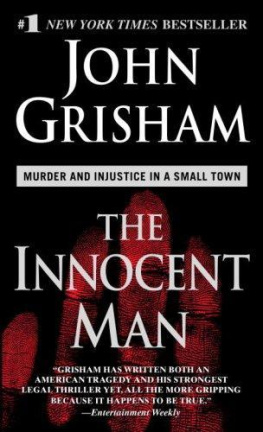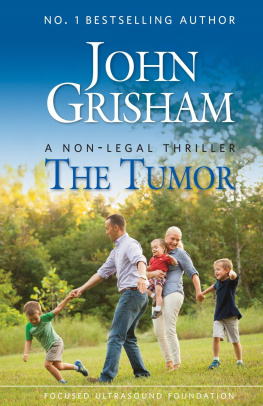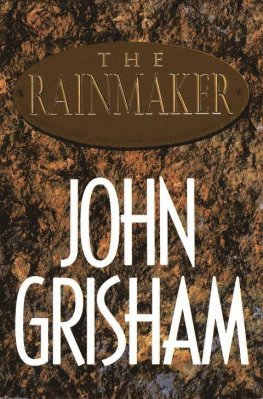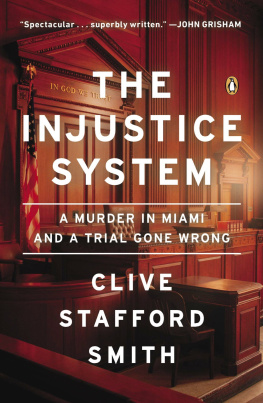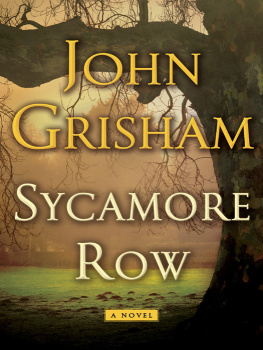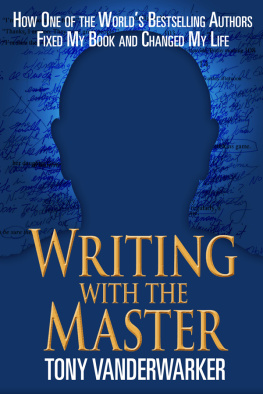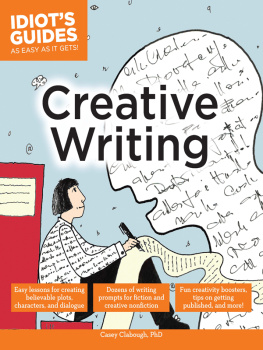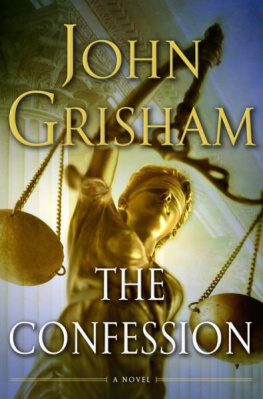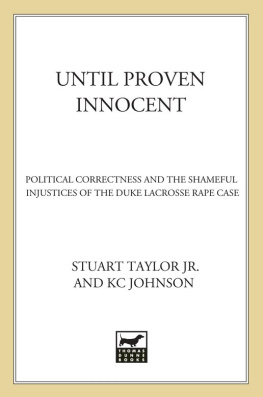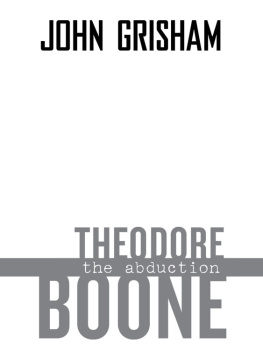Grisham - The innocent man: murder and injustice in a small town
Here you can read online Grisham - The innocent man: murder and injustice in a small town full text of the book (entire story) in english for free. Download pdf and epub, get meaning, cover and reviews about this ebook. year: 2006, publisher: Dell, genre: Detective and thriller. Description of the work, (preface) as well as reviews are available. Best literature library LitArk.com created for fans of good reading and offers a wide selection of genres:
Romance novel
Science fiction
Adventure
Detective
Science
History
Home and family
Prose
Art
Politics
Computer
Non-fiction
Religion
Business
Children
Humor
Choose a favorite category and find really read worthwhile books. Enjoy immersion in the world of imagination, feel the emotions of the characters or learn something new for yourself, make an fascinating discovery.
- Book:The innocent man: murder and injustice in a small town
- Author:
- Publisher:Dell
- Genre:
- Year:2006
- Rating:4 / 5
- Favourites:Add to favourites
- Your mark:
The innocent man: murder and injustice in a small town: summary, description and annotation
We offer to read an annotation, description, summary or preface (depends on what the author of the book "The innocent man: murder and injustice in a small town" wrote himself). If you haven't found the necessary information about the book — write in the comments, we will try to find it.
John Grisham tackles nonfiction for the first time with The Innocent Man, a true tale about murder and injustice in a small town (that reads like one of his own bestselling novels). The Innocent Man chronicles the story of Ron Williamson, how he was arrested and charged with a crime he did not commit, how his case was (mis)handled and how an innocent man was sent to death row. Grishams first work of nonfiction is shocking, disturbing, and enthralling--a must read for fiction and nonfiction fans. We had the opportunity to talk with John Grisham about the case and the book, read his responses below. --Daphne Durham
20 Second Interview: A Few Words with John Grisham
Q: After almost two decades of writing fiction, what compelled you to write non-fiction, particularly investigative journalism?
A: I was never tempted to write non-fiction, primarily because its too much work. However, obviously, I love a good legal thriller, and the story of Ron Williamson has all the elements of a great suspenseful story.
Q: Why this case?
A: Ron Williamson and I are about the same age and we both grew up in small towns in the south. We both dreamed of being major league baseball players. Ron had the talent, I did not. When he left a small town in 1971 to pursue his dreams of major league glory, many thought he would be the next Mickey Mantle, the next great one from the state of Oklahoma. The story of Ron ending up on Death Row and almost being executed for a murder he did not commit was simply too good to pass up.
Q: How did you go about your research?
A: I started with his family. Ron is survived by two sisters who took care of him for most of his life. They gave me complete access to the family records, photographs, Rons mental health records, and so on. There was also a truckload of trial transcripts, depositions, appeals, etc., that took about 18 months to organize and review. Many of the characters in the story are still alive and I traveled to Oklahoma countless times to interview them.
Q: Did your training as a lawyer help you?
A: Very much so. It enabled me to understand the legal issues involved in Rons trial and his appeals. It also allowed me, as it always does, to be able to speak the language with lawyers and judges.
Q: Throughout your book you mention, The Dreams of Ada: A True Story of Murder, Obsession, and a Small Town. How did you come across that book, and how did it impact your writing The Innocent Man?
A: Several of the people in Oklahoma I met mentioned The Dreams of Ada to me, and I read it early on in the process. It is an astounding book, a great example of true crime writing, and I relied upon it heavily during my research. Robert Mayer, the author, was completely cooperative, and kept meticulous notes from his research 20 years earlier. Many of the same characters are involved in his story and mine.
Q: You take on some pretty controversial and heated topics in your book--the death penalty, prisoners rights, DNA analysis, police conduct, and more--were any of your own beliefs challenged by this story and its outcome?
A: None were challenged, but my eyes were open to the world of wrongful convictions. Even as a former criminal defense attorney, I had never spent much time worrying about wrongful convictions. But, unfortunately, they happen all the time in this country, and with increasing frequency.
Q: So many of the key players in this case are either still in office or practicing attorneys. Many family members and friends still live in the same small town. How do you think The Innocent Man will impact this community and other small rural towns as they struggle with the realities of the justice system?
A: Exonerations seem to be happening weekly. And with each one of them, the question is asked--how can an innocent man be convicted and kept in prison for 20 years? My book is the story of only one man, but it is a good example of how things can go terribly wrong with our judicial system. I have no idea how the book will be received in the small town of Ada, Oklahoma, or any other town.
Q: What do you hope your readers will take away from The Innocent Man?
A: A better understanding of how innocent people can be convicted, and a greater concern for the need to reimburse and rehabilitate innocent men after they have been released.
From Publishers Weekly
Grishams first work of nonfiction focuses on the tragedy of Ron Williamson, a baseball hero from a small town in Oklahoma who winds up a dissolute, mentally unstable Major League washout railroaded onto death row for a hometown rape and murder he did not commit. Judging by this author-approved abridgment, Grisham has chosen to present Williamsons painful story (and that of his equally innocent co-conspirator, Dennis Fritz) as straightforward journalism, eschewing the more familiar nonfiction novel approach with its reconstructed dialogues and other adjustments for dramatic purpose. This has resulted in a book that, while it includes such intriguing elements as murder, rape, detection and judicial injustice, consists primarily of objective reportage, albeit shaded by the now-proven fact of Williamsons innocence. The absence of dialogue or character point of view could make for a rather bland audio. Boutsikaris avoids that by reverting to what might be called old-fashioned round-the-campfire storytelling, treating the lengthy exposition to vocal interpretations, subtle and substantial. He narrates the events leading up to the 1982 rape and murder of a young cocktail waitress with a mixture of suspicion and curiosity, moving on to astonishment at the prosecutions use of deceit and false testimony to convict Williamson and Fritz and, eventually, elation at the exoneration of the two innocent men. Throughout, he maintains an appealing conversational tone, an effect made all the more remarkable by the books nearly total absence of conversation.
Copyright Reed Business Information, a division of Reed Elsevier Inc. All rights reserved.
Library : General
Formats : EPUB
ISBN : 9780440243830
Grisham: author's other books
Who wrote The innocent man: murder and injustice in a small town? Find out the surname, the name of the author of the book and a list of all author's works by series.

